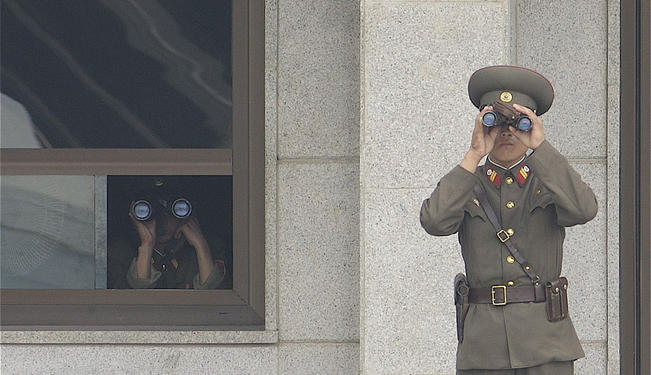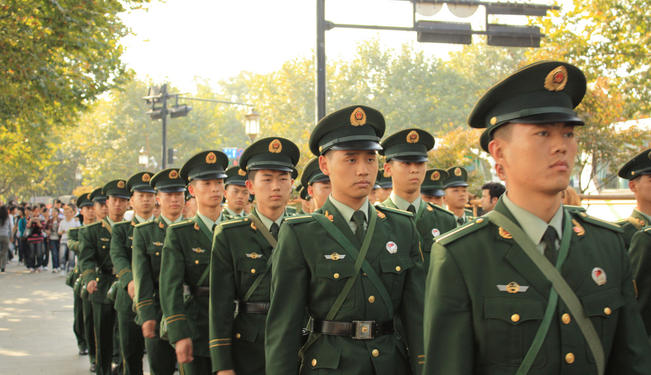Since the failed attempt to sign a first-ever military intelligence agreement with Japan, it is vital that South Korea needs to reassess the entire agreement with respect to its own domestic opinion as well as the broader strategic implications.
South Korea and Japan were recently on the verge of signing their first-ever military agreement (the General Security of Military Information Agreement, or GSOMIA), which would allow the two East Asian nations to share military intelligence. However, on Friday, June 29, 2012, South Korea announced that it would temporarily postpone signing the military pact with Japan. Despite South Korea's government previously asserting the necessity of this pact with Japan, South Korean public opinion swings strongly against such deal at the moment. Despite the domestic opposition, South Korea must consider the strategic importance of the GSOMIA. If it does not, it will most likely face a strategic catastrophe.
Background
Despite their geographic proximity, the bilateral relations of South Korea and Japan have not always been positive. Japan’s colonial rule over the Korean peninsula left immeasurable emotional scars. For most South Koreans, Japan’s war crimes particularly in regards to the treatment of civilians have not been properly answered for. The use of Korean citizens as “comfort women” (prostitutes for soldiers) during World War II is a particularly sensitive issue. Attempts by Japanese politicians and commentators to justify or rationalize their country’s war crimes, have often resulted in angry public opinion from South Koreans.
On top of these unresolved historical legacies there is another important bilateral issue: South Korea and Japan in dispute over the sovereignty of the islets (also known as Dokdo, Takeshima, or the Liancourt Rocks) in the East Sea (Sea of Japan). From the perspective of South Korea, Japan is a neighboring nation-state that South Korea cannot fully trust and rely upon.
Despite South Korea’s distrust and skepticism towards Japan, South Korea’s biggest security threat has always emerged from its northern neighbor, North Korea. Being in the same region as a belligerent neighboring state, South Korea and Japan have been increasingly cooperating with regards to North Korea. In recent years, North Korea’s aggressive and impulsive acts (the sinking of ROKS Cheonan and the bombardment on Yeonpyong Island) have forced South Korea to strengthen its relationship with Japan and the United States.
GSOMIA: a Strategic Necessity?
South Korea has enjoyed a strong bilateral military alliance with the United States since the ceasefire armistice of the Korean War in 1953. Being a southern neighbor to East Asia’s most threatening troublemaker, it is of the utmost importance that South Korea maintains strong military ties with America. The United States’ recent “Pacific pivot” policy, launched in 2011, emphasizes the US's recognition of importance of its Asian military allies. In fact, the alliances with South Korea and Japan have been identified as some of the most important ones. Furthermore, it has been widely reported that the US has warmheartedly welcomed the GSOMIA between its two Asian partners. Granted South Korea is indebted to the US for its security and stability. South Korea must recognize its limited strategic leverage in a region in which the two of the most powerful countries in the world are playing against each other; for instance, while South Korea does regularly obtain satellite intelligence from the United States, some intelligence from the US is out of bounds.
For both South Korea and Japan, North Korea’s belligerent acts have become the major rationale for signing their first-ever military pact. After working together for over a year, the governments were able to agree on the framework. An important rationale for the Seoul government with regards to the GSOMIA is to tap into the Japanese Self-Defense Forces’ (JSDF) state-of-the-art reconnaissance intelligence assets. Needless to say, South Korea does regularly obtain satellite intelligence from the US.
However, it would be naïve to expect Japan’s full and earnest intelligence cooperation with South Korea. Without a doubt, Japan is equipped with high-tech intelligence gathering capabilities (optical and radar satellites, Airborne Early Warning and Control aircrafts, and Aegis-equipped ships). But South Korea is also well-known for its intelligence gathering and analytic efforts against North Korea. One reason for Japan to sign the GSOMIA is to tap into South Korea’s human intelligence (HUMINT) capabilities. According to an article published on June 29th, in South Korea’s newspaper, the Hankyoreh, Japan showed interest in South Korean HUMINT when Seoul was the first to learn about then-North Korean leader Kim Jong-Il’s stroke. Since then, South Korea has embarked on a military modernization program to upgrade its intelligence capabilities to detect North Korea’s actions more effectively. Considering South Korea’s modernization program and its access to America’s intelligence assets, its rationale for the pact with Japan does not make any sense at all.
China Factor
Since reestablishing diplomatic ties in 1992, China has become South Korea’s number one economic trading partner. The volume of bilateral trade between the two countries has already surpassed that of South Korea’s other trading partners. Although South Korea has scored several free trade agreements with other foreign countries (including the US), it cannot be disputed that South Korea’s economy is interconnected with China just like any other country.
Not only does South Korea need to consider its economic ties with China, but it also recognizes China’s greater influence over North Korea. Given the lack of leverage over North Korea in recent years, South Korea is in a position that relies on China’s political and economic leverage with regards to Pyongyang.
Though America’s “Pacific pivot” reiterates its enduring commitment to the region, South Korea must not overlook its relations with China. For instance, pundits in the region have expressed that the GSOMIA with the United States’ consent intends to counterbalance the rise of China. At a time when South Korea seeks China’s strategic and economic cooperation, it must act carefully.
Conclusion
South Korea is a country living under a constant threat from North Korea. It is no wonder that its military alliance with the United States is the fundamental basis of its security dynamics. Perhaps signing the GSOMIA with Japan will enhance South Korea’s capabilities against the North Korean regime. However, South Korea should not ignore domestic opinion towards Japan and antagonize its relations with China. Just because it looks tasty does not always guarantee that it will actually taste good after all.
The views expressed in this article are the authors' own and do not necessarily reflect Fair Observer’s editorial policy.
For more than 10 years, Fair Observer has been free, fair and independent. No billionaire owns us, no advertisers control us. We are a reader-supported nonprofit. Unlike many other publications, we keep our content free for readers regardless of where they live or whether they can afford to pay. We have no paywalls and no ads.
In the post-truth era of fake news, echo chambers and filter bubbles, we publish a plurality of perspectives from around the world. Anyone can publish with us, but everyone goes through a rigorous editorial process. So, you get fact-checked, well-reasoned content instead of noise.
We publish 2,500+ voices from 90+ countries. We also conduct education and training programs
on subjects ranging from digital media and journalism to writing and critical thinking. This
doesn’t come cheap. Servers, editors, trainers and web developers cost
money.
Please consider supporting us on a regular basis as a recurring donor or a
sustaining member.
Support Fair Observer
We rely on your support for our independence, diversity and quality.
Will you support FO’s journalism?
We rely on your support for our independence, diversity and quality.










